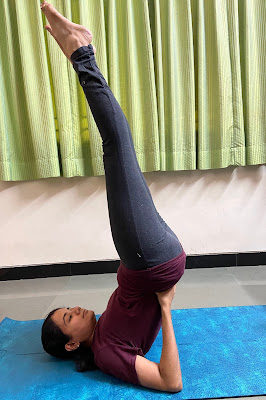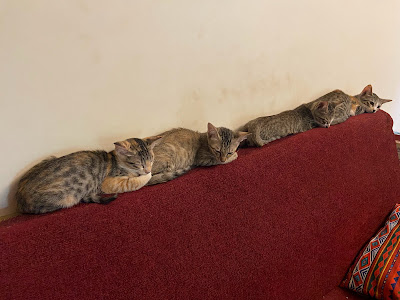Aging is like that dreaded, inevitable board exam.
Some choose to go unprepared and wing it at the last minute, hoping that luck would favor them.
Some end up facing out-of-syllabus questions in the form of sudden, unexpected ailments.
Some might know that the exam questions will be tough and yet they wouldn't be willing to prepare for it.
Only a few start their preparation many years in advance.
"What if I go unprepared? What's the worst that could happen?", I hear your question!
Our entrenched habits, routines, rituals, beliefs, and character can either be life-serving or life-crippling. If these belong to the latter, then facing aging unprepared will end up causing complications not only for us but also for our loved ones (spouse, children, and grandchildren).
For boarding an international flight, we reach the airport 3-4 hours earlier. There are multiple steps and procedures before we set foot on the flight. Do we directly enter the flight at the last minute? Not possible.
For the journey into the next stage of our lives, don't we need to start our preparations at least a few years earlier?
I believe the 40s is the right age to start the process when we have the physical strength and mental willpower to take action.
How does one prepare for aging?
Introspect and Simplify ALL aspects of our lives
Here are 9 steps that I have learned through observation and experiences in the past couple of years. For ease of reading, I'm writing them in a YOU tone.
(1) Reduce or Eliminate dependency on lifelong medications
If you are diagnosed with health ailments and need to be under medication for a lifetime, look into the prescriptions. Understand the dosage and need for every single pill. Correct your lifestyle habits (food, exercise, sleep) and reduce the medications as much as possible. Without lifestyle changes, the dosage will keep increasing, causing numerous side effects and reducing the quality of life in your senile years.
(2) Reduce the number of things needed to live a day in your life
Make a list of things you use every single day. Understand the need for each one of them. Try and experiment to live off a single suitcase for a few months and see what are those absolute essentials you need.
(3) Reduce the number of possessions you own
Get rid of items you no longer need. Declutter your home and digital storage. Don't put that arduous task of clearing out your hoarded items on top of your loved ones' heads after you move on.
(4) Reduce the number of tasks you do in your daily routine
If you reach a stage in your life where you no longer have the physical/mental ability to pursue a task, learn to let go of them. There is no point dumping those tasks on your loved ones, just because you consider them to be important. Your beliefs and values may not resonate with your children. Forcing them to perform such tasks will only lead to conflict.
(5) Reduce attachment towards any rituals or routines, though they might have helped you in the past. Do not be rigid about the exact procedures or steps. Go easy on yourself and your loved ones.
(6) Change habits that are not life-serving
It is first our DUTY to take care of our health before we put the DUTY guilt on top of our spouse/children's heads. It is unfair that we let our loved ones face the consequences of our poor health choices. Let's analyze those habits that spoil our health and try to stop them as early as possible.
(7) Become self-reliant in basic tasks
If you are a man, learn these in your 40s if you haven't done so earlier - making coffee/tea for yourself, cooking basic meals, serving your food, using a washing machine, washing the cups/plates that you use, etc.
If you are a woman, learn these in your 40s if you haven't done so earlier - handling finances, visiting banks, understanding expenses, investments, making online bill payments, etc.
Ensure there is shared knowledge among family members on where important documents are organized in the home and the digital world.
(8) Understand common mental patterns and habitual reactions through self-awareness and observation. If our patterns point to entitlement, worry, anxiety, fear, egoistic attitude, or demand energies, then these end up becoming a huge bottleneck in our 60s/70s, when our physical body isn't at its full potential and our mental faculties are slowing down.
Keep in mind, that our spouse will also be going through similar changes, both physically and mentally. Our children will be in their 30s, working full time and raising their young children. Such habitual patterns will only cause more mental agony to others in the family.
(9) Reduce desires as you age
Our health situation might be limiting us on multiple fronts - be it a restriction of physical movement, diet restrictions, slowing down digestion, etc. Yes, we might have eaten 12 pooris in one go in our 40s, but our digestive fire in our 70s may not be able to take this load. Reduce the quantity of food intake and number of meals if possible.
The 40s is considered the ideal time to build our retirement corpus. Agree with this thought, but unless we prioritize the above-mentioned areas of life, the retirement corpus will lose its value in no time.





.png)




